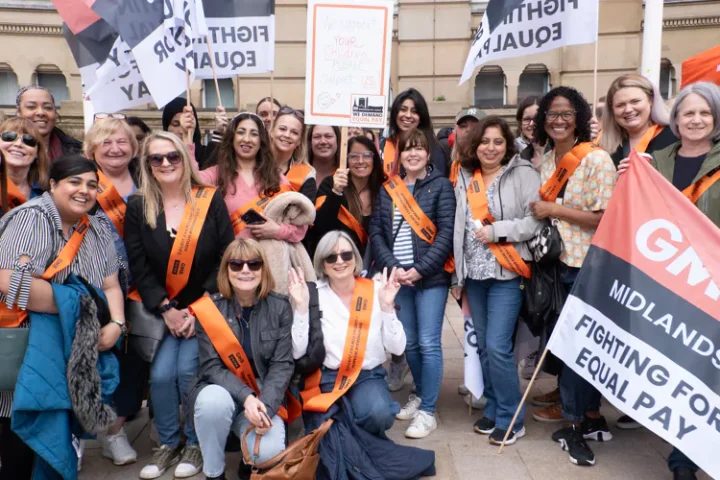I will not be taking part in this year’s festivities on 8th March.
Usually, I am giving a speech somewhere – unpaid, because after all it is women’s work – watching lots of virtue signalling, while reading about what the numbers actually tell us in the companies crowing about their success.
On Saturday 8th March, I shall instead be landing in Rwanda. Plans include shopping at a women’s cooperative that is doing a great deal to support women in business, meeting and encouraging women building their own careers to provide for and improve the lives of their families and their country. Somehow, it feels more real.
So why am I, an incorrigible optimist, feeling curmudgeonly about International Women’s Day (IWD)? Well, I’m fed up pointing out that, at 51% of the adult population, women are neither a minority nor very diverse – except from each other. What we are, instead, is much more aligned with younger generations and all other diversities. Whatever benefits women, benefits the majority of those people deemed ‘different’ from the ones who have held the power and the finances for generations.
My first ever big speech was for the Glasgow Herald bicentenary. We, the panel, argued for 50% representation in business and politics. This isn’t exactly a groundbreaking statement, I hear you say, plenty of women call for it every day. But that speech took place in 1983! I have the newspaper cutting, or I wouldn’t believe it myself.
Here I am still talking about it – boring you, boring me. We have moved at glacial speed in employing the entire talent pool more effectively, treating women with equity.
Research shows incontrovertibly that having a diverse workforce is good for business, yet real results are slow to change. Why are some firms failing?
I co-wrote the book ‘Coaching Women to Lead’, following research with the London School of Economics (LSE) in 2011, then the second edition in 2020. In the intervening time, some things had changed. This was mainly the number of people with ‘diversity’ in their job titles, the number of policies written, and yes, the number of women on boards – albeit non-execs, or the same women on a range of boards. But had things really changed in the real world? And if not, why not?
Call me a psychologist, but I see some of the answers to the puzzle in the deep-seated erroneous beliefs people hold, handed down by ancestors and never fact-checked.
Political correctness means that the bulk of those who hold these beliefs have the sense not to say them out loud, but this concern for appearance backfires, as this silence means that the beliefs are never aired – and therefore challenged – in the light of day. Here are a couple of the common ones:
Myth #1: Women do not ‘need’ their jobs in the same way that men do
As evidenced by the chap who foolishly said to a very senior woman who decided to leave the organisation – for more money and less stress – “But your husband is well paid. You must just work for the pin money.” Should she have stayed at home doing her embroidery?
Women are breadwinners, contributing equally or more to the household, in many situations. They are also single parents and divorcées, just like men. But they are often the first to be let go in downturns, or held back from advancement, because deep down, it is assumed they don’t need the money as much as the men
Myth #2: Women don’t bring in as much money as men
One law firm was keen to “do the right thing’, as they put it, and have more women as equity partners. “We know they don’t bring in as much money, but it is still the right thing to do,” they said. Our response was to crunch the numbers.
In fact, as it turned out, the few women who had made it to that level were star contributors. They had to be, to prove themselves and get to where they were. There was a long tail of low-performing male equity partners, but the belief was perpetuated, despite all the evidence to the contrary
Myth #3: Women won’t stick around
The truth is, that despite the narrative that babies will lure women away from the workplace, this is not the whole picture. In fact, men don’t stick around because they change jobs more frequently, expecting more from their employers and demanding what they believe they are worth. Women, meanwhile, tend to be more foolishly loyal, hoping that you will treat them right if they continue to prove themselves – give them raises commensurate with their results and opportunities for advancement based on how well they do the job – and not because they shout louder than their peers.
If a woman does eventually leave, she will go where she believes she can make a bigger impact and get the opportunities she craves. Interestingly, while men say they work to support their families, women say they work to make a difference. She may take some time out for family reasons, but the likelihood is that she will come back even better placed and more committed than before.
There are many more examples of faulty and inaccurate thinking. By all means, let me know your own favourites.
Accelerate action
So, we come back to International Women’s Day. The slogan for 2025 is ‘Accelerate Action’, but how do we make that real? First, what action for change have you planned for the next year? How can you accelerate that to make it more impactful?
As we have barely gone from nought to 60 in 50 years, it would be good to think about how acceleration could now finally be achieved. Perhaps it needs women to do it for themselves, stop trying to be nice about it and go big, or should we just wait another 50 years for things to change?
If you haven’t read about Iceland’s ‘kvennafrí’ – or ‘women’s day off’ – of 1975, repeated at intervals since and achieving greater equality each time, check it out. In 2023, Prime Minister Katrin Jakobsdóttir joined the women walking out of work to protest the gender pay gap and gender-based violence.
So, celebrate the women in your firm – don’t worry men, you get 19th November for International Men’s Day, but it is up to you to make something of it. Make examples of stars and role models. Ask them what they really want, listen carefully and enlist their help in making it happen this year. Give them their seat at the next table, the stretch assignments, the development they crave, the feedback they cherish.
Make sure you define how you will ‘Accelerate Action’. Report your pledges openly and ask your employees to keep you accountable. Treat it like any other business challenge and lead from the top. Otherwise, IWD is just a ‘corporate Valentine’s Day’ with lots of show and sentiment.
I’d love to hear that you are doing something profoundly different this year. Me? I’ll be shopping.
Averil Leimon is co-founder of White Water Group

















